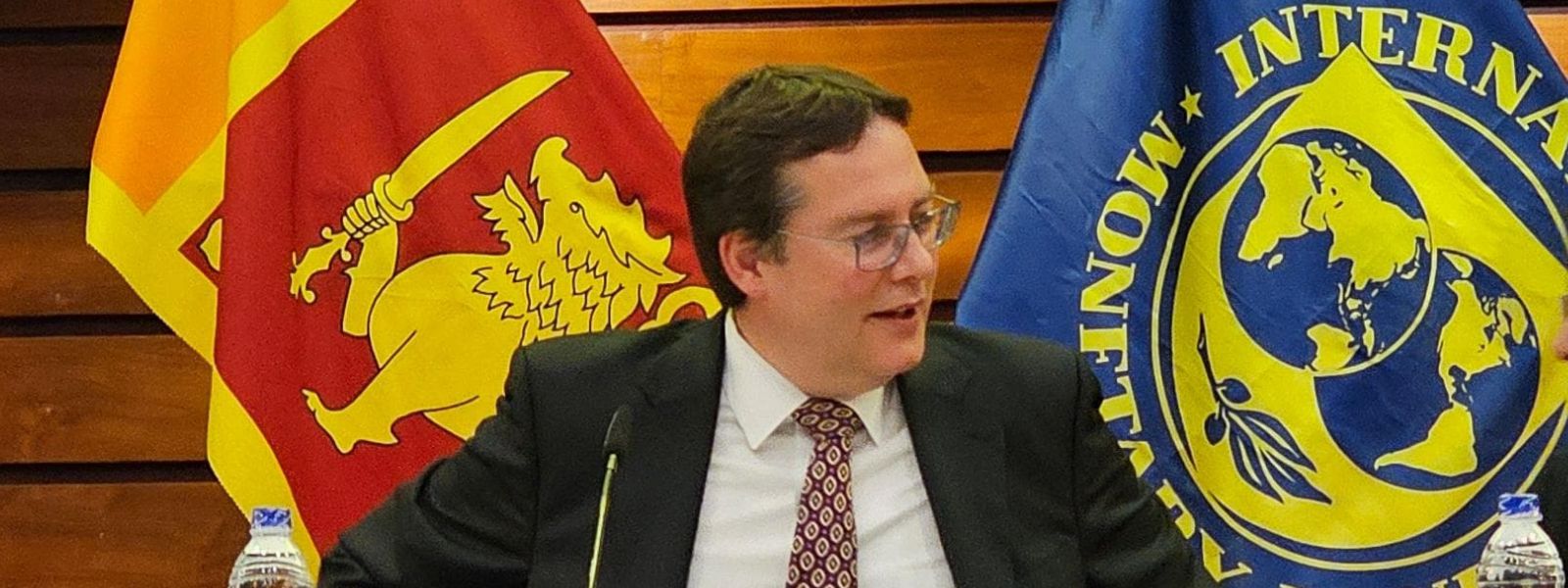.webp)

Sri Lankan People Paying Price For Past Policy Missteps: IMF Mission Chief
COLOMBO (News 1st): The Sri Lankan people are paying a regrettably high price for past policy missteps and insufficient preparation for the bad luck that struck, said Peter Breuer, Senior Mission Chief of the International Monetary Fund (IMF).
Speaking at the event to launch a book penned by Sri Lanka's Finance Secretary Mahinda Siriwardana, he said that unsustainably low taxes and sizable tax exemptions were an accident waiting to happen.
"The flip side of the government's enhanced ability to fund its essential services today is that taxpayers have had to shoulder a higher burden, even as they are asked to contribute commensurately with their income and wealth. Similarly, the full cost of fuel and electricity is now meant to be borne by their users without subsidies by the government. And that allows scarce public resources to be directed to priority areas such as social protection. These sacrifices are needed to ensure that Sri Lanka can extricate itself fully from its still very vulnerable position and prevent a return of the calamitous conditions experienced in 2022," said Breuer.
Peter Breuer, Senior Mission Chief of the International Monetary Fund (IMF), has shared a poignant account of Sri Lanka's economic crisis and the subsequent recovery efforts. Speaking on his last day in the role, Breuer recounted his arrival in Sri Lanka in June 2022, amidst a nation in turmoil.
"When I landed in Sri Lanka in June 2022 at 4 AM, all I saw were miles and miles of queues of cars, trucks, lorries. During the daytime, there were no signs of economic activities because everybody was queuing for food, for medicines. There were power outages. We often sat in the dark in the room because of these power outages," Breuer described.
At that time, Sri Lanka had only a few million in usable reserves left, and the fiscal coffers were depleted, forcing the country to declare a payment moratorium. The most urgent challenge was to pave the way out of the crisis through measures negotiated as part of the IMF support package. The IMF programme was finally approved on March 20, 2023.
"In the two years since the programme's inception, difficult but much-needed reforms were undertaken with significant gains, thanks to the commitment and sacrifice of the people of Sri Lanka. Most noticeable, there are no more lines for fuel, cooking gas, and medicines, and no scheduled power outages. The economy has rebounded strongly and quickly. It grew 5% last year. And in a mere 18 months, it recovered just under half of the output that was lost from 2018 to 2023. That is a remarkable pace," Breuer highlighted.
Skyrocketing inflation has been halted, and tax revenues as a share of GDP have increased significantly. The overall macroeconomic turnaround is remarkable, even as many households are yet to feel the impact. Debt relief provided by external creditors has reduced the burden on the Sri Lankan people, and markets have rewarded Sri Lanka's reforms with sharp declines in domestic borrowing costs from a peak of 30% in 2023 to around 8% now.
Breuer emphasized the importance of continuing disciplined macroeconomic policies and limiting tax exemptions to ensure stable and inclusive growth. "Keeping the reform momentum going will be key for full recovery, benefiting not only this generation but also future ones. And the IMF will remain a steadfast partner to support Sri Lanka in securing a strong and durable recovery, improving the lives of all citizens," he noted.
Other Articles
Featured News





.png )








-785316_550x300.jpg)



















.gif)